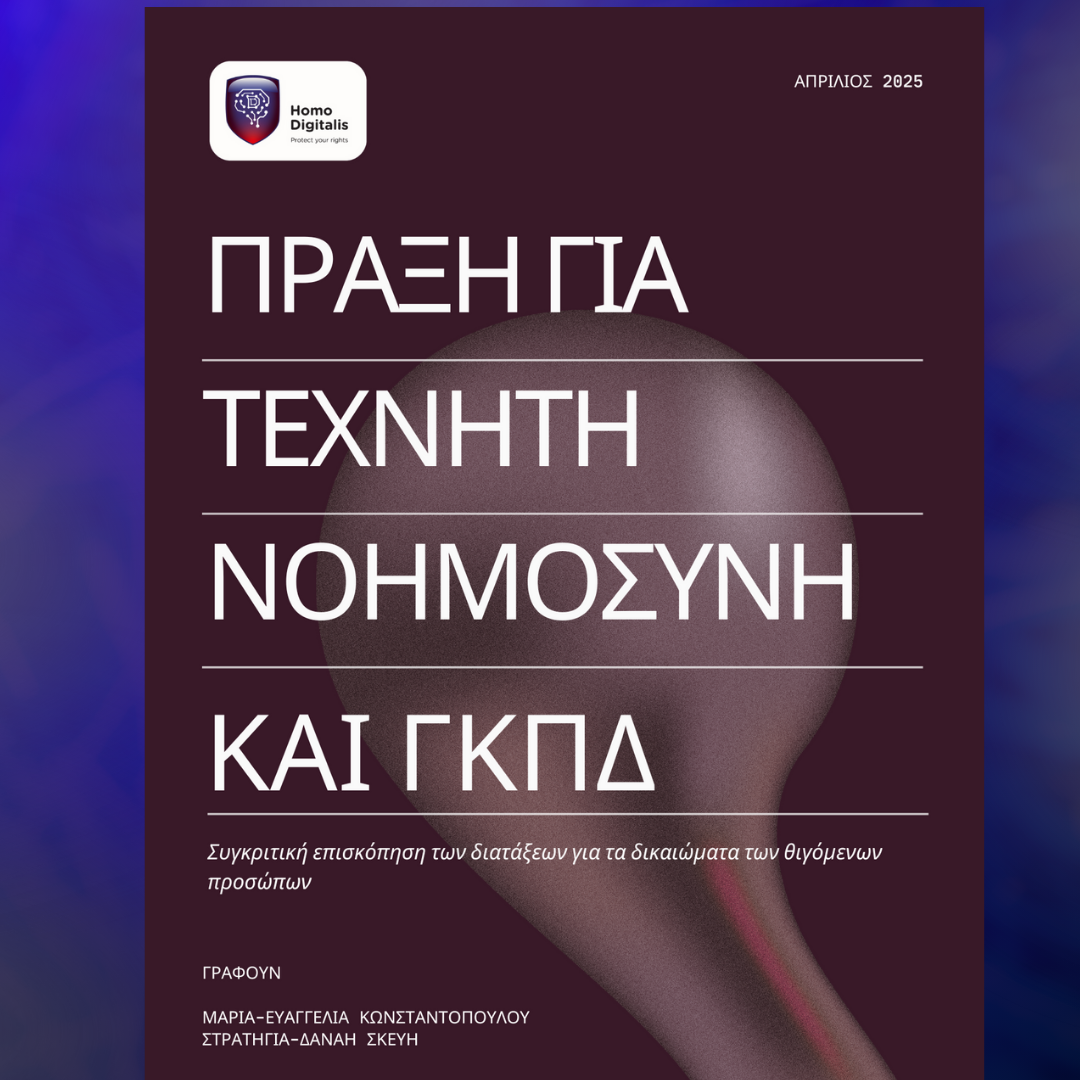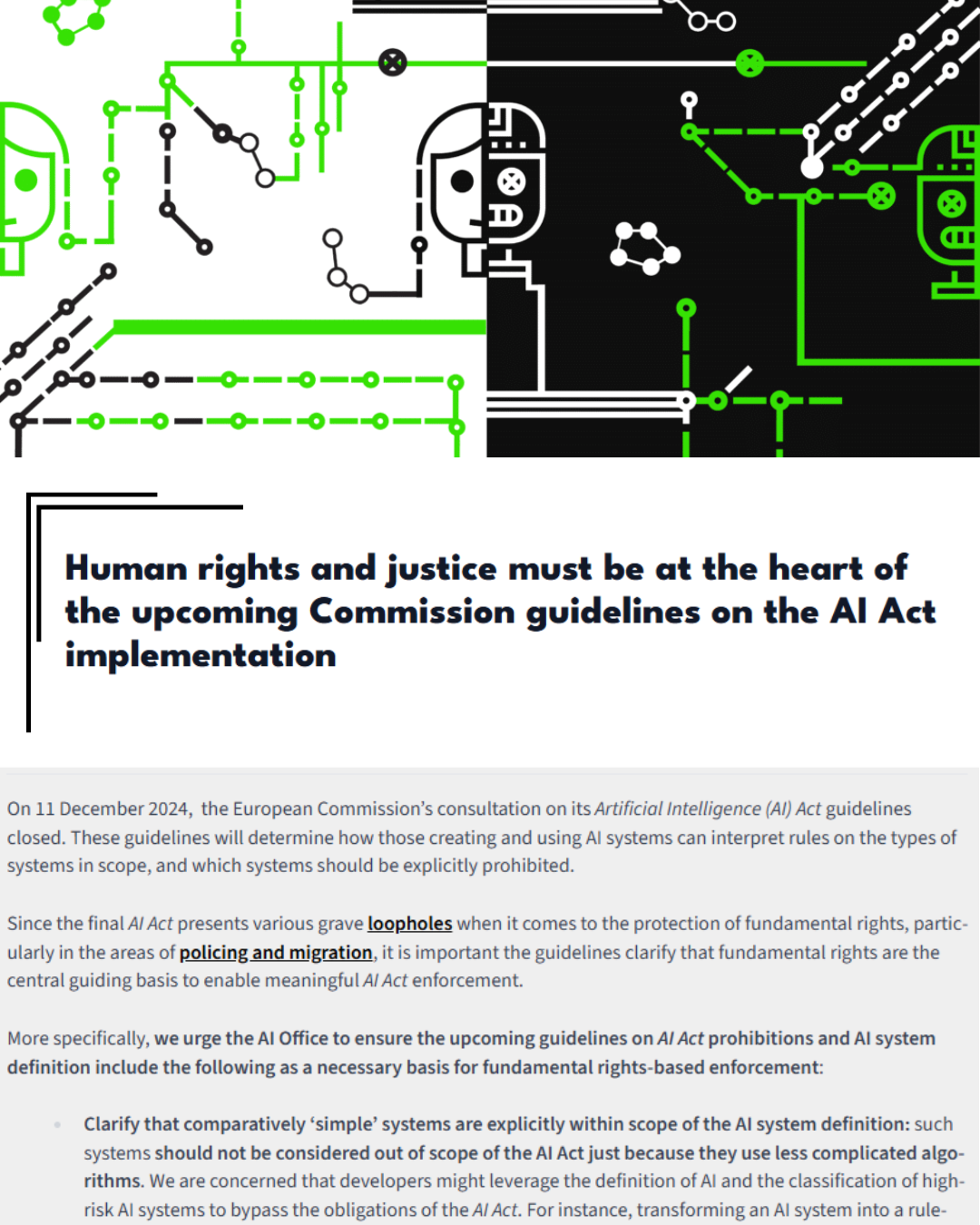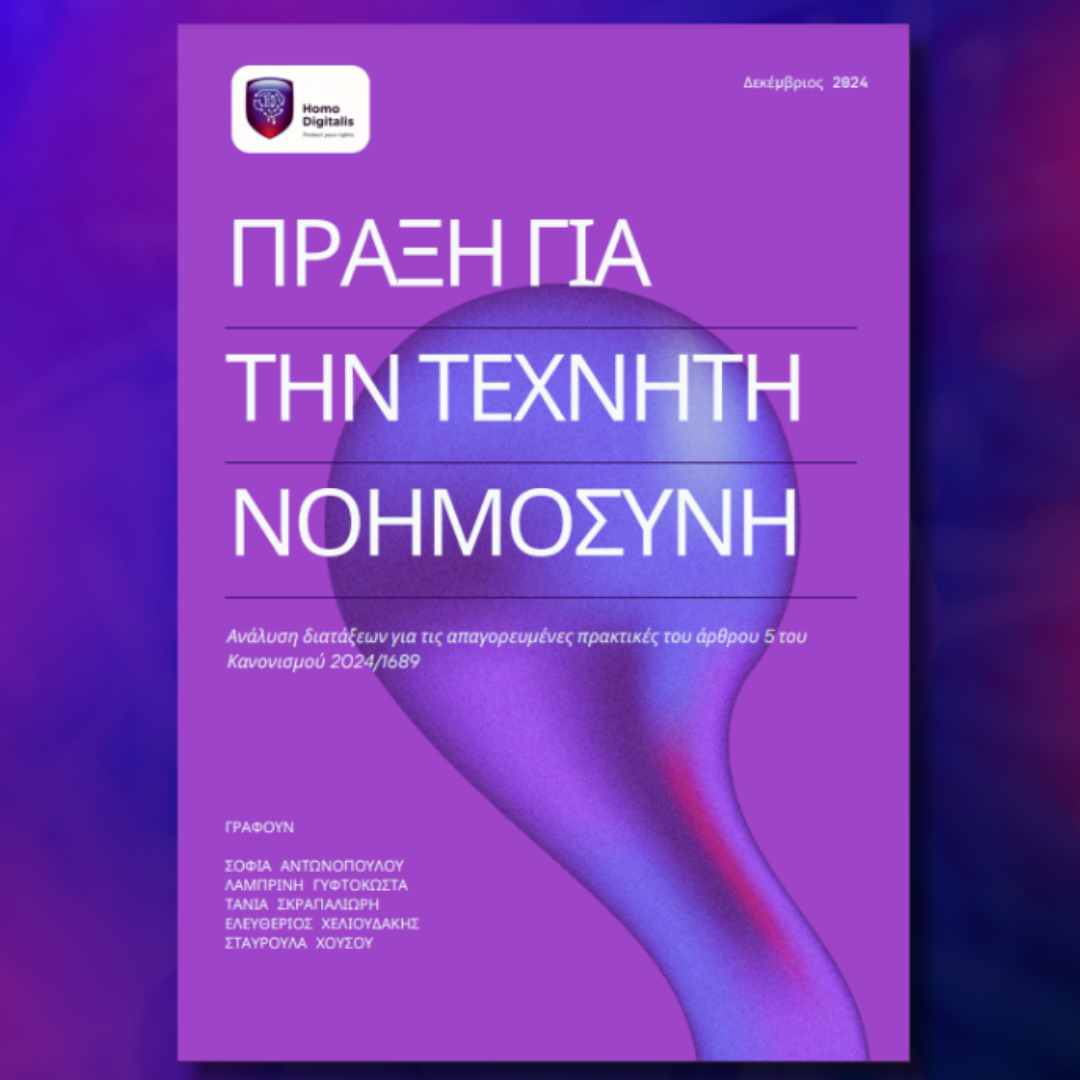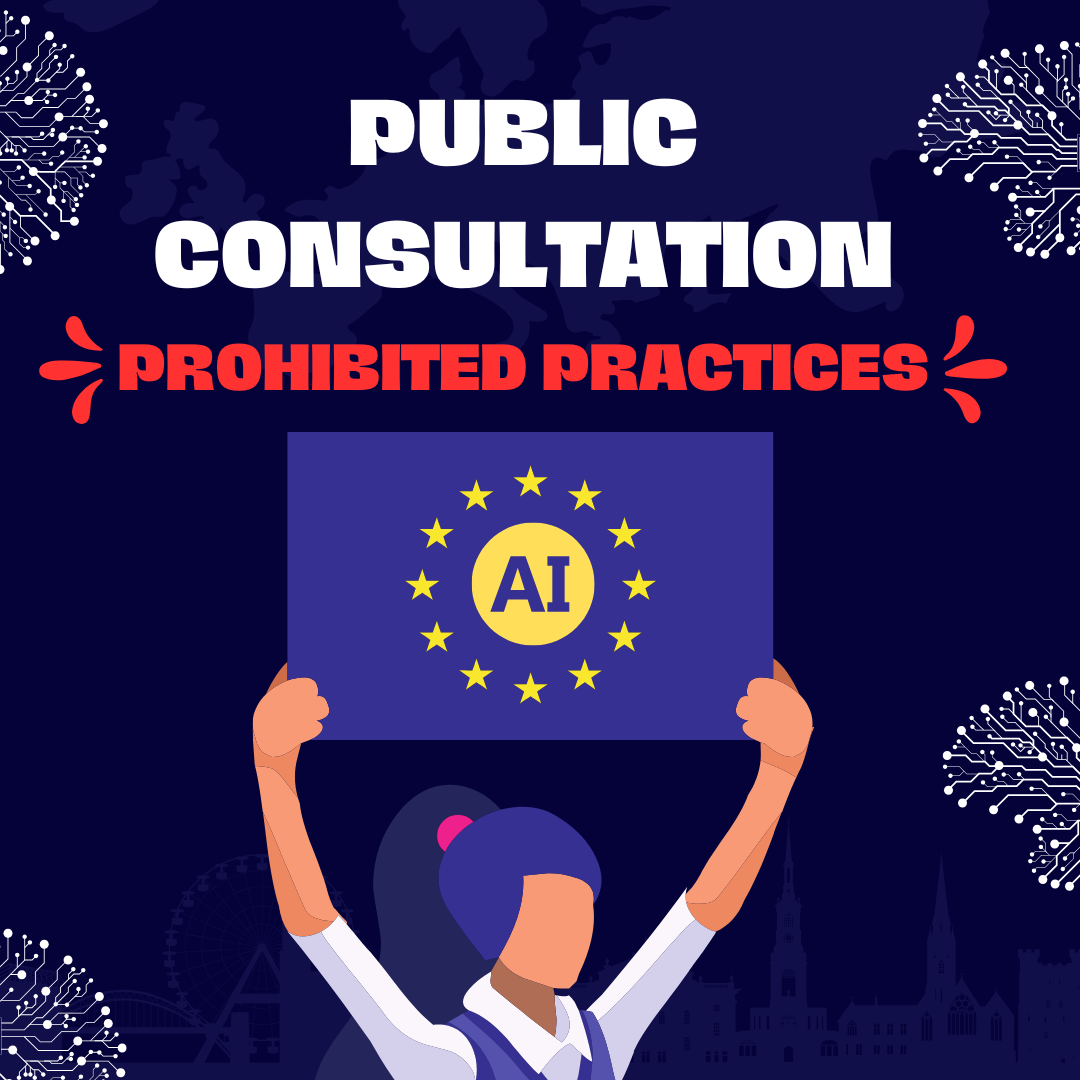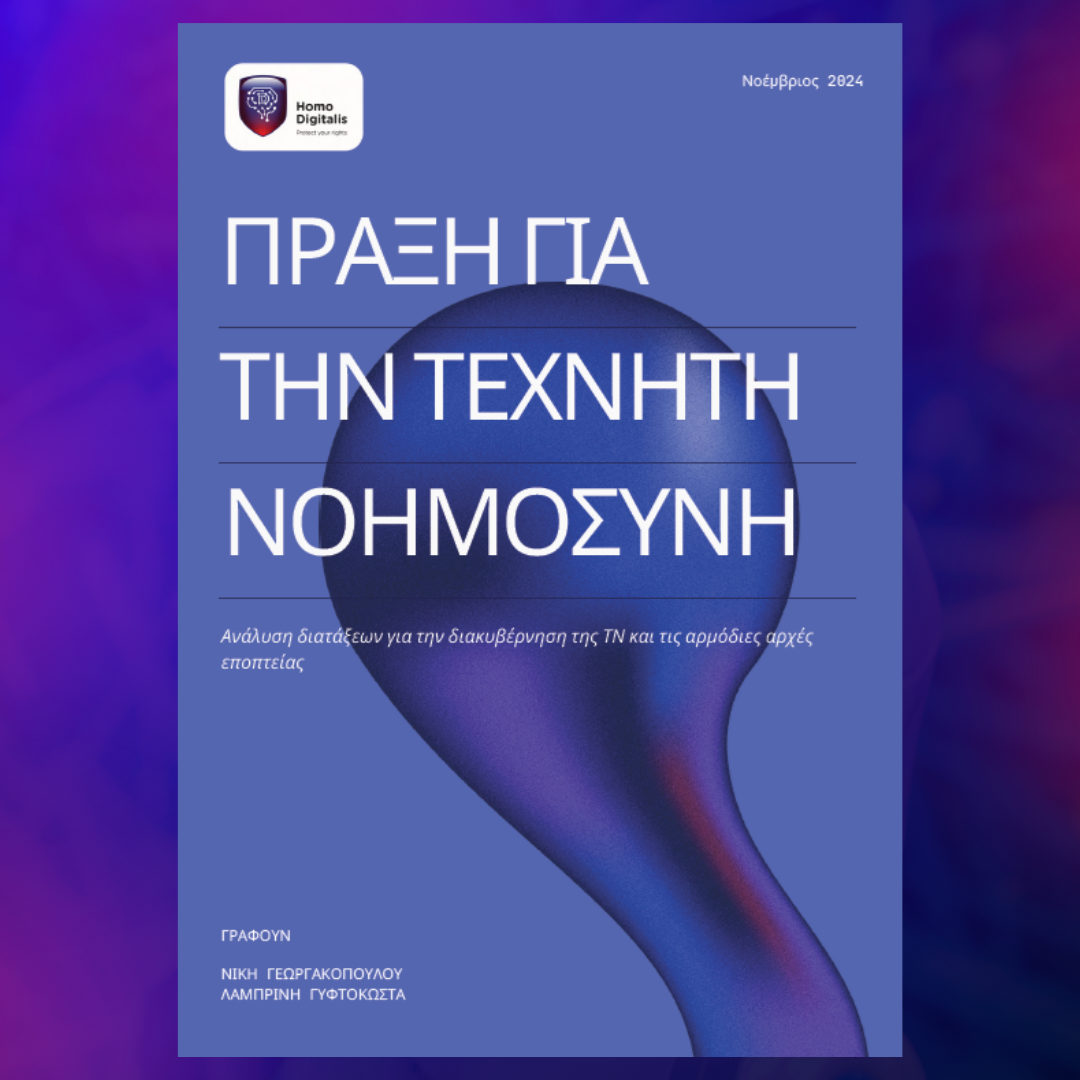Article 77 of the AI Act: 6 months after the designation of the Fundamental Rights Authorities
On the first official deadline set by the Artificial Intelligence Regulation (AI Act), it required member states to appoint one or more authorities in accordance with Article 77 for the protection of fundamental rights by November 2, 2024.
Today, May 2, 2025 — six months after the deadline — 25 out of the 27 European countries have appointed a total of 210 authorities, a number that seems staggering and at the same time sends a strong message about how seriously these countries take the issue of fundamental rights. But does it reflect reality?
With this brief study, we aim to provide answers to the following questions:
What is the purpose of Article 77 of the AI Regulation?
Which authorities have been appointed by the member states to date?
What powers does the AI Regulation actually grant to these regulatory authorities, and what obligations arise from Article 78 of the AI Regulation regarding the confidentiality of information?
Who are the four national authorities that have taken on this role, what are their existing and new powers under the AI Regulation?
Through a case study, our Director on Fundamental Rights and AI, Lamprini Gyftokosta, attempts to explore how these authorities will cooperate, while also raising some questions that will undoubtedly concern us over time.
You can read our study here (EL).
We publish our 4th Study on the AI ACT – Comparative overview of the provisions on the rights of affected individuals
Today, April 11, 2025, Homo Digitalis publishes its fourth study on the provisions of Regulation 2024/1689 on Artificial Intelligence (AI), widely known as the AI Act.
This study focuses on the right to explanation and the right of individuals not to be subject to automated decision-making.
Specifically, the use of artificial intelligence systems for making automated decisions is continuously expanding in both the public and private sectors, with significant impacts on the individuals subjected to them.
Therefore, this study examines the legal remedies available to individuals affected by decisions made through the use of AI. The analysis focuses on the right to an explanation of individual decision-making as provided in Article 86 of Regulation 2024/1689. However, since the protection of affected individuals is not limited solely to these provisions, the analysis extends to the right to contest individual decision-making, which—under appropriate interpretation—is based on Article 22 of Regulation 2016/679, known as the GDPR.
The study’s authors are two distinguished legal professionals and volunteer members of Homo Digitalis: Maria-Evangelia Konstantopoulou and Stratygia-Danai Skevi (listed alphabetically).
You can read our 4th study here.
We remind you that we have published three previous studies on Regulation 2024/1689 and its transposition into the Greek legal order: in October (impact assessment on fundamental rights), November (AI governance and competent supervisory authorities), and December (prohibited practices) of 2024, respectively.
This intensive effort aims to contribute constructively to the public dialogue in Greece and at the EU level in the field of artificial intelligence, and it is the result of significant support from the European Artificial Intelligence & Society Fund.
Joint Statement on the Upcoming European Commission Guidelines on Prohibited Practices of the AI Act
We are publishing a joint statement on the upcoming European Commission Guidelines on Prohibited Practices of the AI Act.
On December 11, 2024, the European Commission completed its public consultation on the interpretation of the definition of an AI system and on prohibited AI practices, in accordance with the provisions of Regulation 2024/1689 (AI Act). Homo Digitalis participated in the related process.
In the context of the issuance of the expected guidelines by the Commission, concerns remain about potential gaps that could jeopardize fundamental rights. For this reason, and together with more than 25 civil society organizations, academics, and other experts, we are issuing a statement today, urging the AI Office and the European Commission to ensure specific demands.
You can read our joint statement here.
We Publish Our Third Study on the AI Act, Focusing on Article 5 & Prohibited Practices
Today, Homo Digitalis publishes its third study on Regulation 2024/1689, the now widely known AI Act, titled “AI Act: Analysis of the Provisions on Prohibited Practices under Article 5 of Regulation 2024/1689.”
The study’s authors are Sofia Antonopoulou, Lamprini Gyftokosta, Tania Skrapalioti, Eleftherios Chelioudakis, and Stavroula Chousou.
This analysis systematically examines each provision of Article 5 of the AI Act, covering manipulative or deceptive techniques, exploitation of vulnerabilities, social behavior scoring, facial recognition databases, crime prediction, emotion inference, biometric categorization systems, and remote biometric identification.
We provide targeted questions highlighting key aspects of these provisions, identifying “gray areas” where ambiguities, overlaps, or interpretative challenges arise. Additionally, we present concrete examples to support our concerns and formulate specific questions for clarification by the European Commission’s AI Office and national legislators.
Like our previous studies (published in October and November 2024), this study aims to assist the Ministry of Digital Governance in implementing the AI Act in Greece. Through in-depth analysis and well-founded arguments, we seek to enrich public debate and empower more civil society organizations to engage actively.
You can read our study “AI Act: Analysis of the Provisions on Prohibited Practices under Article 5 of Regulation 2024/1689” [here].
Homo Digitalis participated in AI Office’s consultation on Prohibited Practices under the AI Act
In November 2024, the European Commission’s Artificial Intelligence (AI) Office launched a consultation on AI Act prohibitions and AI system definition.
The guidelines under development will help national competent authorities as well as providers and deployers in complying with the AI Act’s rules on such AI practices ahead of the application of the relevant provisions on 2 February 2025.
Homo Digitalis participated in this public consultation process by submitting our input, in an attempt to highlight challenges and provide further clarity on practical aspects and use cases.
The authors’ team of our public consultation is composed of our Director on Human Rights & Artificial Intelligence, Lamprini Gyftokosta and our members Sophia Antonopoulou and Stavrina Chousou.
You can read our input here.
Stay tuned, since our dedicated report on the AI Act and its provisions on Prohibited Practices is to be published soon!
We publish our Second AI Act Study on market surveillance authorities and the AI governance ecosystem
Today Homo Digitalis publishes its second study on Regulation 2024/1689, the now well-known AI Act, entitled “AI Act: Analysis of Provisions for AI Governance and Competent Market Surveillance Authorities“.
The writing team for the study consists of Homo Digitalis’ Director of Human Rights and AI, Lamprini Gyftokosta, and our member Niki Georgakopoulou.
The purpose of this Homo Digitalis analysis is to highlight some of the critical issues raised by the implementation of the AI governance system provisions, taking into account national structures as well as the civil society perspective.
More specifically, in this analysis we answer the following questions:
- What governance structure does the Regulation propose for AI?
- What does the concept of ‘market surveillance authority’ mean for the AI Regulation?
- What is in Regulation 2019/1020 and why should we consider its provisions together with the AI Act?
- Which Greek authorities meet the requirements set out in the two Regulations and why?
- What governance models have been adopted or are under discussion in other jurisdictions at this time?
- What are our main concerns?
- What are our main suggestions for improvement?
We recall that on 12 November, the Department for Digital Government took the first official step in implementing the AI Act by publishing the list of national authorities for the protection of fundamental rights. These principles include: The Data Protection Authority, the Ombudsman, the Communications Privacy Authority and the National Human Rights Commission.
In this regard, as early as 25 October, with our first Study “Analysis and proposals for the incorporation of the provisions on impact assessment on fundamental rights in Greece“, we had already presented detailed proposals on this issue. If you did not have time to read our Study, we invite you to see the one-page summary we prepared, specifically for the National Fundamental Rights Authorities.
The Ministry’s publication was only the first step. The next critical obligation is the institutional design of the market surveillance authorities, which must be completed by August 2, 2025, in accordance with Article 113 of the Regulation.
The second Study that we are publishing today is precisely intended to assist the Ministry of Digital Governance, which has the task of carrying out the difficult task of synthesizing this ecosystem in Greece, but also, with our detailed analyses and arguments, to help mature the public debate and enable more civil society organizations to actively participate in it.

